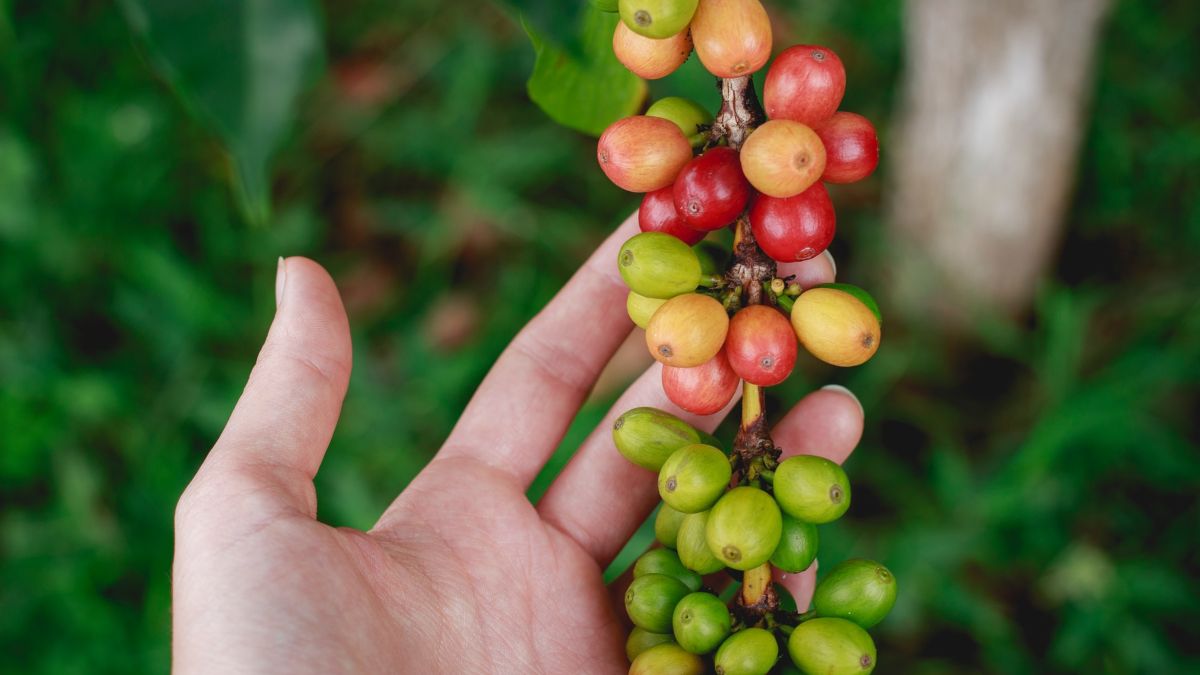El Salvador Coffee Farms to Visit
4 min readEl Salvador coffee is some of the best in the world. Here, to celebrate International Coffee Day, we look at some of our favorite coffee farms in this tiny Central American country.
The post Our Favorite El Salvador Coffee Farms appeared first on Central America.

El Salvador coffee is some of the best in the world. Here, to celebrate International Coffee Day, we take a look at some of our favorite coffee farms in this tiny Central American country.
If there’s one product that Central America is famous for, it’s coffee. Central America is the home of the first banana republics. You’ll find all sorts of tropical fruit on your supermarket shelves originating in this part of the world. But its the coffee where Central American quality shines through.
Every country in Central America produces great coffee – even Belize, which is better known for its chocolate. It’s all that volcanic soil, you see. That, and a combination of altitude and latitude that creates perfect growing conditions in this part of the world. The most famous coffee producing countries in Central America tend to be Guatemala, Honduras, and Costa Rica (these coffee experts fell in love with the country’s delicious honey processed coffee beans). But coffee lovers in the know won’t ignore the coffee in El Salvador.
The Importance of Coffee in El Salvador
El Salvador might be Central America’s smallest country, but in coffee production terms, it packs a punch. For much of the 19th century, after El Salvador became independent, coffee accounted for over half of GDP in the country. Nowadays, that figure is into single digits, but don’t let that fool you into thinking coffee isn’t important. El Salvador coffee sustains small farmers and producers. After the civil war ended in 1992, land reforms broke up many large coffee estates. Now, over 90% of coffee is grown on farms of less than 20 hectares.
Even El Salvador’s President Nayib Bukele has gotten involved with coffee. He recently launched Bean of Fire, his own coffee brand aimed at showcasing the country’s high-quality coffee varieties on the global stage. This initiative not only promotes El Salvador’s coffee but also supports local businesses and encourages expatriates to return and invest in their homeland. Bukele’s passion for coffee reflects the importance of this industry to El Salvador’s economy and culture.
Unique Characteristics of El Salvador Coffee
Another interesting fact about Salvadoran coffee is that the vast majority of it – some 90% – is shade-grown. This means it grows under the canopy of other trees, rather than out in the sun. Experts consider shade-grown coffee to be a more natural way of cultivation, producing better tasting beans. Shade-grown coffee is also better for the environment, involving less pesticide use while also preserving local eco-systems and wildlife.
And then there’s the notable low acidity of El Salvador’s coffee beans. The country is famous for producing stomach-friendly beans, mostly in the form of bourbon, pacamara, and – most recently – geisha. These beans produce a full-bodied yet smooth flavor that makes Salvadoran beans perfect for blended coffee.
El Salvador might be Central America’s smallest country, but in coffee production terms, it packs a punch. For much of the 19th century, after El Salvador became independent, coffee accounted for over half of GDP in the country. Nowadays, that figure is into single digits, but don’t let that fool you into thinking coffee isn’t important.
Coffee in El Salvador sustains small farmers and producers. After the civil war ended in 1992, land reforms broke up many large coffee estates. Now, over 90% of coffee is grown on farms of less than 20 hectares.
Another interesting fact about Salvadoran coffee is that the vast majority of it – some 90% – is shade-grown. This means it grows under the canopy of other trees, rather than out in the sun. Experts consider shade-grown coffee to be a more natural way of cultivation, producing better tasting beans. Shade-grown coffee is also better for the environment, involving less pesticide use while also preserving local eco-systems and wildlife.
And then there’s the notable low acidity of El Salvador’s coffee beans. The country is famous for producing stomach-friendly beans, mostly in the form of bourbon, pacamara, and – most recently – geisha. These beans produce a full-bodied yet smooth flavor that makes Salvadoran beans perfect for blended coffee.
Our Three Favorite El Salvador Coffee Farms
With that all said, let’s now take a look at some famous coffee farms in El Salvador. These places all accept visitors who can come and learn about the growing and production process. And, of course, get to buy and take home lots of quality, delicious, coffee!
J.J. Borja Nathan Estate Coffee Farms
One of the biggest producers of coffee in el Salvador is the J.J. Borja Nathan Estate. Owned by Grupo Borja, it produces 12 varieties of coffees and exports worldwide. All their farms are in the mountains around Apaneca. The rich volcanic soil provides the perfect ground for high-quality coffee.
Finca Divina Providencia Estate
Finca Divina Providencia, in Apaneca, has a unique microclimate and nutrient-rich soil, which makes it ideal ground for coffee production. It’s a perfect example of a shade-grown coffee farm. This is another farm that offers tours for anyone traveling through or staying in this part of El Salvador.
Finca El Carmen
Also located near Apaneca is Finca El Carmen. It’s another good example of a shade-grown coffee farm, and it produces excellent red and orange bourbon variants. Finca El Carmen also offers overnight accommodations and coffee tours.
Whether you take a coffee tour in El Salvador or not, or stay in one of the country’s coffee farms or not, make sure you pick up some tasty El Salvador coffee to take home for yourself or as a gift for your loved ones. It’s one of the best souvenirs you can ever buy in El Salvador. And on this International Coffee Day, there’s no better time to appreciate the unique qualities and rich heritage of El Salvador coffee.



